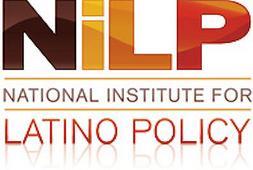
NiLP Guest Commentary
Remembering March 1, 1954: The Day Puerto Rican Nationalists Attacked the United Sstates Congress
by Olga Jiménez de Wagenheim
The NiLP Report
 Sixty-four years ago Lolita Lebrón and three male companions traveled
from New York City to Washington, D.C., where they planned to attack the
United States Congress in order to let the world know that Puerto Rico
was still a colony.
Sixty-four years ago Lolita Lebrón and three male companions traveled
from New York City to Washington, D.C., where they planned to attack the
United States Congress in order to let the world know that Puerto Rico
was still a colony.
Two years earlier, the Popular Democratic Party administration in Puerto Rico had reached an understanding with the United States government to grant the island autonomy. Between 1950 and 1952 several steps were taken to make the petition a reality: a referendum was held, a constitution was drafted, and the people voted in favor of remaining tied to the United States by virtue of a "compact," that could not be amended unilaterally. The U.S. Congress enacted a law, which the president signed, and then sent to the United Nations for consideration in 1953. The U.N. approved the experiment in November 1953, though its vote was split. The outcome of the three year process was a new form of government, known thereafter to the islanders as Estado Libre Asociado (ELA) and to the rest of the world as the Commonwealth of Puerto Rico.
In opposition to the PDP's plans, the Nationalists, led by Pedro Albizu Campos, staged an uprising pn October 30, 1950 before the E.L.A. constitution was drafted, on grounds that the proposed government was "a charade." Though the uprising was crushed, the Nationalists continued to struggle against what they called a new "colonial formula which added insult to injury by asking the colonized to consent to their own enslavement."
|
|
|
|
Lolita Lebrón |
|
It was precisely that interpretation that led Lolita and her comrades to launch an armed attack against the U.S. Congress on March 1, 1954. For their acts the four were tried and sentenced to prison terms ranging from 50 to 75 years. They ultimately served 25 years of their sentences and returned to Puerto Rico, where three later died.
The one remaining, Rafael Cancel Miranda, has had to witness the imposition of the Financial and Oversight Management Board (the Federal Fiscal Junta), a group authorized by Congress, by the enactment of the PROMESA law signed by President Barack Obama before he left office. The law simply negates the very autonomy that was ostensibly granted by another Congress in 1952.
Since the Nationalists and other pro-independence groups were decimated over time by a myriad of federal and local counterintelligence groups, the island did not mount an organized resistance to the Junta Fiscal, which now oversees, and often denies the island's government the power to act that it still claims to have. What PROMESA and the Junta Fiscal have made abundantly clear is that the U.S government has unilaterally violated the compact it signed with Puerto Rico in 1952.
Were Lolita Lebrón alive today, she would agree with Rafael Cancel Miranda, her partner in the attack of Congress, that history had in fact proven them right: Puerto Rico never stopped being a colony in 1952.
Olga Jiménez de Wagenheim, a noted historian and native of Camuy, Puerto Rico, recently returned to Puerto Rico with her husband, journalist Kal Wagenheim. She is the author of several books on Puerto Rico. Her most recent publication is "Nationalist Heroines: Puerto Rican Women History Forgot, 1930s-1950s" (Markus Wiener Publishers, 2016). She can be reached at ojwagenheim@cs.com.
_______________________________________________________________________________________________________
The NiLP Report on Latino Policy & Politics is an online information service provided by the National Institute for Latino Policy. For further information, visit www.latinopolicy. org. Send comments to editor@latinopolicy.org.
